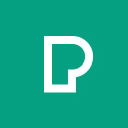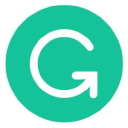Creating A High-Ticket Mastermind Program And Onboarding 50+ Paying Creators
Hey there! I’m Melanie Deziel co-founder of Creator Kitchen, writing on behalf of myself and my cofounder, Jay Acunzo. We’re both international keynote speakers, authors, and respected experts in the content, marketing, and storytelling spaces. Jay is also a prolific podcaster, while I tend to stick to the written word. (Hence, I’m here talking to you. Hi.)
Creator Kitchen is a mastermind for entrepreneurs, marketers, and creators learning to craft more valuable, more original content. We ultimately teamed up to bring the mastermind to life in early 2023, and we now have 50+ amazing creators from all over the world cooking with us and mastering their craft. (By the way, we’re really into the whole extended kitchen metaphor so prepare for more of that.)
We teach members in live masterclasses and workshops, bring in inspiring expert guests, host weekly roundtable discussions and open office hours, engage in an always-on Slack community, and offer access to a growing library of tutorial videos, templates, prompts, and more. All of this is to help seasoned creators become stronger storytellers, hone their craft, and feel more confident in their creative skills.
As of our most recent member survey, 100% of members said that joining the Creator...

































